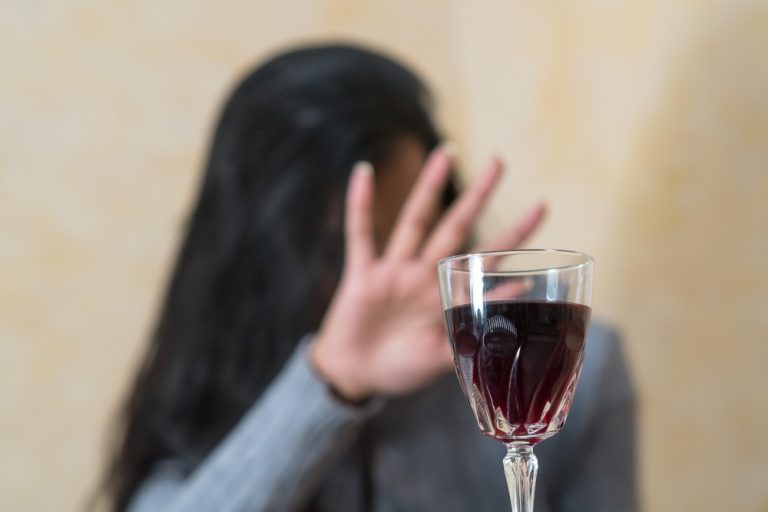6 Reasons Youre Sensitive to Caffeine and What to Have Instead
It’s not always clear if depression makes you drink or vice versa. Studies of twins have shown that the same things that lead to heavy drinking in families also make depression more likely. When you drink too much, you’re more likely to make bad decisions or act on impulse.
RACGP – Alcohol
Some companies use misleading advertising to claim that their products can prevent hangovers. But the only guaranteed way to prevent a hangover is to not drink alcohol. However unpleasant, most hangovers go away on their own, though they can last up to 24 hours. If you choose to drink alcohol, doing so responsibly can help you stay away from hangovers. Stress – our body’s reaction to feeling threatened or under pressure1 – is very common, and it’s a topic that’s widely discussed. You may Halfway house not realize how much alcohol you’re actually drinking in a week.

Therapists can attempt to draw on patients’ own experiences in this regard, when possible. During the course of depression treatment, it may be useful for therapists to reassess alcohol use when there are increases in depressive symptoms (e.g., sleep, libido) that are affected by drinking or when these symptoms do not improve. It may even be helpful to ask patients to keep a log of their drinking and depressive symptoms to help determine whether there is a temporal association between the two. People with DSM-IV alcohol dependence are 3.7 times more likely to also have major depressive disorder, and 2.8 times more likely to have dysthymia, in the previous year.
Cut Back on Screen Time
One study by the National Institute on Alcohol Abuse and Alcoholism found that people with alcohol use disorder (AUD) were 2.3 times more likely to have major depressive disorder than people who did not have AUD. Having both depression and an alcohol use disorder is common. Alcohol use issues can cause or worsen symptoms of depression. At the same time, people with depression may attempt to self-medicate with alcohol.
Drug and Alcohol Education Resources for Culturally & Linguistically Diverse – Positive Choices
If you’re feeling overwhelmed by your anxiety disorder, there are other ways to seek help. If you have a history of anxiety or mental disorders, make sure to share this with your healthcare provider so you know how alcohol or other substances may affect you differently. If you experience symptoms of depression for most of the day, every day, for a few weeks, the NHS advises you to contact your GP surgery to get help. And if you’re worried about your drinking, there are alcohol support services that can help. But for some people, these feelings don’t go away – they get worse and their feelings of depression can start to interfere with everyday life. For example, if someone is experiencing depression, they may drink as a way to cope—and at first they may seem to feel better.
- Stopping and starting could make your anxiety or depression symptoms worse.
- Regular drinking can lead to depression, and depressed people are also more likely to drink too much.
- Check with your doctor or pharmacist to see whether any of your meds may be affecting how your body processes caffeine.
- A sedative pill like Xanax might better serve the former, and an upper like cocaine the latter, with their more targeted and “clean” physiological effects.
- But drinking alcohol while you take a medication that may cause drowsiness could impair your judgment and raise your risk of accidents, such as car wrecks and falls.
Do dopamine levels return to normal after quitting alcohol?
You’re giving up something that used to be a big part of your life. Yes, that thing was harming you, but it also played a starring role in some of your biggest life moments. If they become overwhelming, you’ll need to get additional support. Drinking doesn’t change the structure of your brain overnight, and it won’t be fixed that way, either. The result is a miserable feeling that nothing will ever be good again. When that happens, your brain no longer functions normally without alcohol.
Related Conditions
More research is needed to find the exact cause of wine headache. A hangover is a group of unpleasant symptoms that can happen after drinking too much alcohol. As if feeling awful weren’t bad enough, frequent hangovers also are linked with poor performance and conflict at home, school and work.
A good first step is to keep a record of how much alcohol you drink and of when you don’t drink throughout the week. Alcohol can make you more likely to be depressed, and being depressed can make you more likely to drink alcohol. People who have problems with alcohol are also more likely to self-harm and commit suicide. Drinking alcohol excessively can also get in the way of other activities, your relationships, and your self-esteem, which can further affect your mental health. Alcohol affects your brain, making you feel relaxed in a small amount of time. As you drink more, you become intoxicated and unsteady, and you might do or say things you normally won’t.
There are many lines of research that us exercise helps people to feel better – physically and emotionally. But when you drink a lot, there’s a good chance meaningful body movement isn’t happening. Fueled by feelings of guilt and shame, the result can be a situation where a person isolates. That’s not a good thing because we know from mounds of research that social interaction is critical to preventing depression. The more these chemicals dip in your system, the crappier you feel. If you keep drinking, these neurotransmitters struggle to achieve balance.
Using alcohol to cope with social anxiety disorder can be dangerous. According to the Anxiety and Depression Association of America (ADAA), about 7 percent of Americans have this form of anxiety. If you’re at low risk of addiction to alcohol, it may be OK to have an occasional drink. So I ended chain smoking a lot, slamming cans of soda (hello post-drinking sugar cravings), and mindlessly scrolling my phone to pass the time. I couldn’t find anything purposeful to do with myself in those early days.

Plus, take note of how your mood is each day — if you’re feeling extra on edge already, try and go against the temptation of remedying that with alcohol. Even if you’re consuming a standard amount of alcohol — a 12-ounce beer or a 5-ounce glass of wine — you’ll experience a mild detox or withdrawal. It takes your body and liver about eight hours to remove what’s essentially a poison. As this is happening, it can affect your central nervous system and cause you to feel jittery or anxious.
Speaking to your healthcare provider first can ensure you have the appropriate tools and medications to reduce alcohol safely. While alcohol can initially make you feel sleepy, it actually disrupts the quality of sleep later in the night. Alcohol interferes with does drinking make your depression worse REM (rapid eye movement) sleep, which is essential in regulating emotions and processing stressful experiences. It can get worse over time, especially when combined with regular or heavy alcohol use. Having an extra drink or two once in a while doesn’t automatically translate to heavy drinking.
